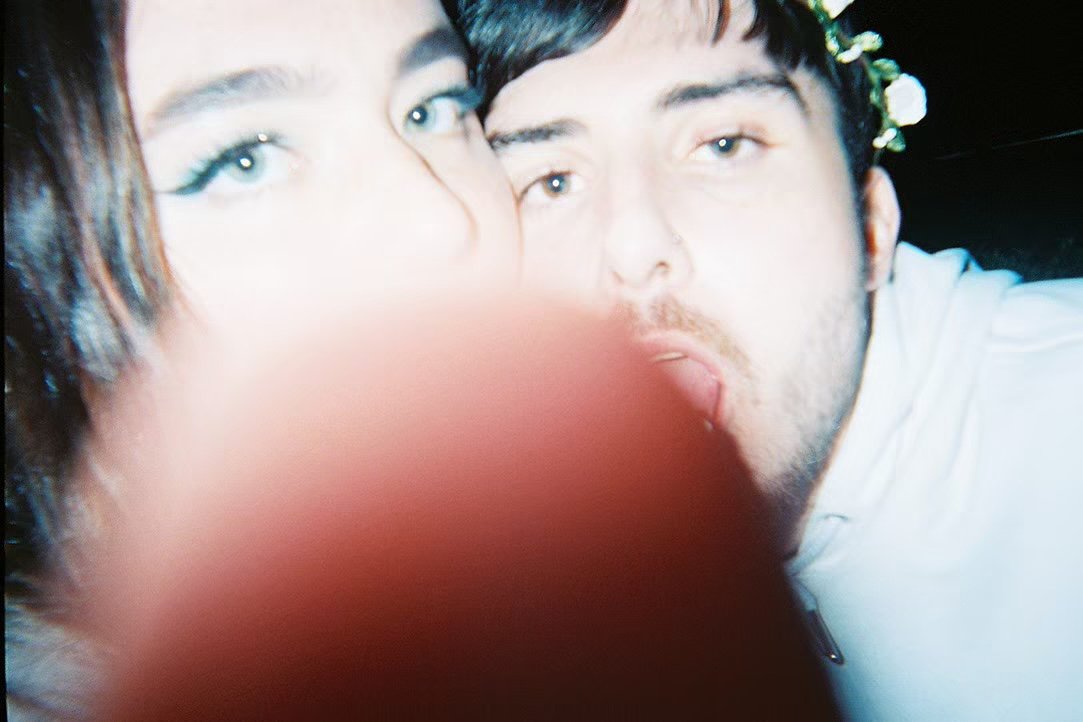Why I’ve decided to cut off friends who ghost me for a guy
Ever had a friend drop off the face of the Earth when they get into a relationship? Relationship coach Kelley Nele explains how to deal with it - and why she doesn’t.
A few years ago I had a friend, Mbali*, who would enter a relationship and drop off the face of the planet. I didn’t think anything of it at first, but when it happened two more times it became clear as day that she was one of those “friends”.
After the third strike, I knew I had to cut her off. I couldn’t be friends with someone who was essentially using me as a placeholder for when they got a boyfriend. When I told Mbali how I felt her behavior was selfish, she responded by saying that she didn’t care. There was no apology, no remorse. I deleted her contact immediately, removed her from all my socials and haven’t spoken to her since.
Unfortunately, this wasn’t my first or only rodeo with a relationship-obsessed, fair-weather friend. I’ve attracted them all my life and I’m convinced that I have a special scent that only they can detect.
Don’t get me wrong, I’ve definitely had plenty of consistent, good friends, but I also seem to attract a high quantity of fair-weather friends who have an incurable obsession with romantic relationships.
My history with relationship-obsessed friends technically started in high school.
I had a friend –we’ll call her Jessica* –who was in a relationship throughout our entire high school career. The longest she had ever been single was probably about five months.
In college, one of my best friends from high school, Natasha*, got a boyfriend. Although we went to different schools in different provinces, we would talk on the phone weekly.
Once she started seeing her boyfriend, everything changed. Her calls became infrequent and she wouldn’t always pick up when I called her. Our weekly calls became monthly calls. When I confronted her about it, she admitted that because she had a “built-in” best friend, she didn’t need that much from her friends.
In an interview with NPR, psychotherapist Esther Perel spoke about the human tendency to place all of our needs onto our partner.
“Marriage was an economic institution in which you were given a partnership for life in terms of children and social status and succession and companionship. But now we want our partner to still give us all these things, but in addition, I want you to be my best friend and my trusted confidant and my passionate lover to boot…” Perel says.
“So we come to one person, and we basically are asking them to give us what once an entire village used to provide.”
Natasha and I remained friends for about a year after that conversation, but eventually the lack of effort on her end forced me to end the friendship.
“The combination of childhood trauma and internalised messaging makes it difficult to maintain friendships with these friends if they leave issues unchecked”
Unfortunately, we live in a world where women are conditioned by the patriarchy to believe that romantic relationships are the be-all and end-all. That the main goal in life is to fall in love and that nothing else matters.
We see this depicted in the fairytales we consume as children, all the way to the romantic comedies we consume as teens and adults.
Take that and slap childhood neglect/inconsistent caregiving and you get the sort of woman who would sacrifice everything and everyone one in the name of “love.”
Being relationship-obsessed is often a sign of love addiction. According to VeryWellMind, one of the causes of love addiction is childhood trauma and one way it manifests is “prioritizing the relationship with a partner over family and friends.”
Now, I’m not saying we should abandon friends who abandon us—especially when there is a chance that the reason why they did was because they were in an abusive relationship.
What I’m saying is that no matter how much we love these friends, the combination of childhood trauma and internalized messaging – that a woman’s life is meaningless without a relationship and that said relationship takes priority over everything – makes it difficult to maintain friendships with them if they leave these issues unchecked.
Last year, I made a resolution to weed out and steer clear of relationship-obsessed friends and the following tips have helped me do just that.
Pay attention to the quality of the conversation: If you listen, girlfriends will tell you what they value most in life. Girlfriends who tend to talk about crushes, meeting the one, and always have a guy they’re talking to are red flags. Watch out for them!
Pay attention to their behavior: Do they disappear for periods of time after being incredibly consistent? Is there any indication that they’re talking to someone? Do they pop back up with drama from their latest misadventure in love? Are they extra sweet when they need something? For example, comfort or someone to hang out with.
Call them out: Some people will be apologetic, some won’t. Some will reflect on this and grow, others won’t. Take this information and move forward appropriately.
Reevaluate the friendship: Not all friendships need to be close ones. Different friendships exist for different needs. If you’re not a priority in their life, don’t make them a priority in yours. Adjust your expectations and set appropriate boundaries.
Avoid these types of friends completely: You’re not obligated to be friends with people like this. It’s your life, and you get to gatekeep yourself and decide what sort of relationships you want to have.
What makes “friendships” like these so frustrating is how intimate they are… until they aren’t.
How inaccessible these types of friends are during our times of need, but how consistent we are during theirs.
How their invitations to hang out are always when the boyf’ isn’t available. How nauseatingly sweet they are during those moments.
Oh, and don’t forget the entitlement these friends have when it comes to us receiving them with open arms after they’ve practically abandoned us.
Read more: How to argue less (or better) in 2024
I haven’t made a relationship-obsessed friend since I made my resolution to stop befriending them.
I still have one relationship-obsessed friend who I have been friends with since childhood. I’ve accepted who she is but I’m very clear on what role we play in each other’s lives.
I love her, but I have adjusted my expectations and set appropriate boundaries that help me navigate our friendship with less resentment.
Some of these boundaries include; no last minute plans (when boyfie is not around), not being readily available every time she needs me, sharing news and seeking comfort from friends who prioritize me. Essentially, not going out of my way for someone who wouldn’t do the same consistently.
When setting appropriate boundaries, relationship expert Bethany Nicole suggests that we look at the friendship as a whole first and foremost.
“If they want to keep this person around for coffee hangouts and birthday party invites then you kind of just look at them as a peripheral friend. When they show up cool, when they don't, also cool. And same for you. You hit them up for coffee, you don't call them about a bad day.” Nicole says.
If the person in question is a close friend, Nicole suggests we use the three strike rule. The essence of this rule is that we bring the issue to the friend in a mindful way two times. If there is a third incident then… strike! They’re out!
I’ve finally overcome the guilt of removing friends like this from my life and wanting more for myself, and so should you!
Everyone deserves community, but no one is entitled to it. Friendship is a gift, and you should only share it with those you deem worthy.
*names have been changed


